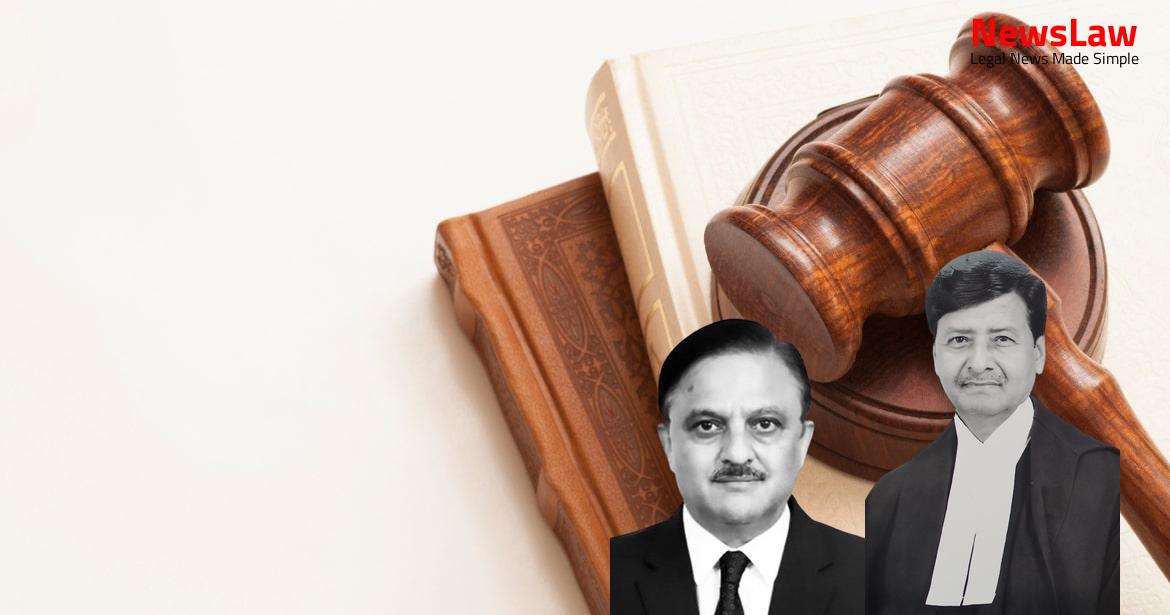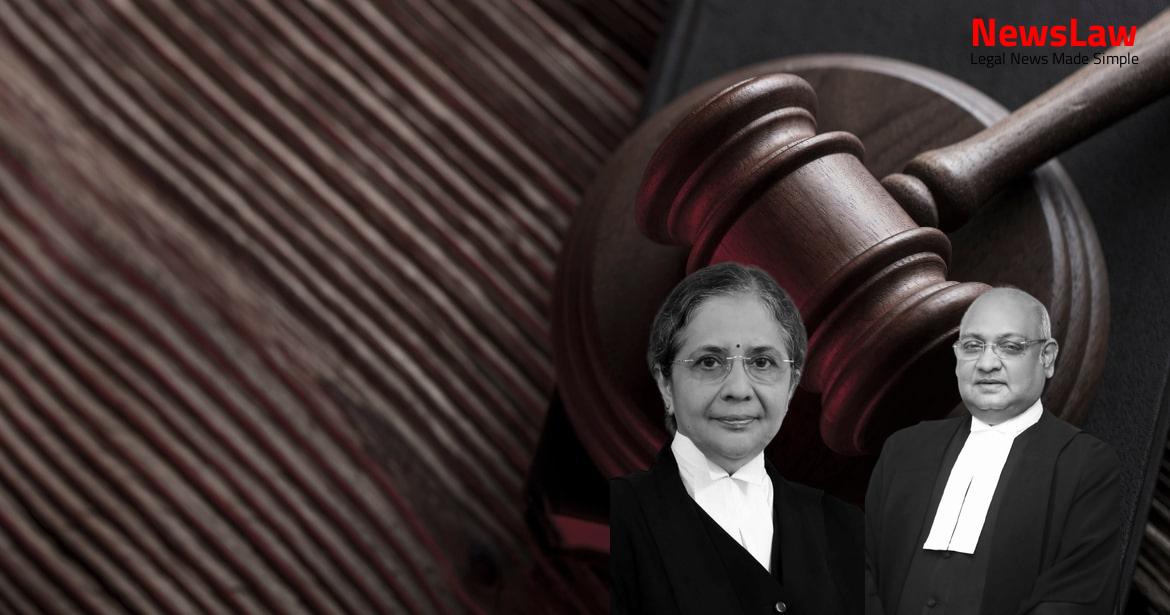The case delves deep into the realm of civil liabilities and penalties under the EPF Act 1952. The court’s legal analysis on the necessity of mens rea for imposing damages for default in EPF contributions sheds light on the broader spectrum of civil obligations. Discover the nuances of the legal principles at play in this detailed exploration of the case.
Facts
- Non-compliance of Act 1952 mandate from January 1, 1975, to October 31, 1988, resulted in proceedings under Section 7A.
- Dues towards EPF contribution for the period were assessed at Rs. 74,288.
- Amount was paid by the appellant after adjudication.
- Appeals filed against the judgment from October 26, 2009, by the Division Bench of the High Court of Karnataka.
- Notice under Section 14B was issued for damages for delayed payment of provident fund amount from January 1978 to September 1988.
- Damages of Rs. 85,548 were levied on the appellant.
- The High Court decision stated that once the employer admits the default in payment of contribution, they are obligated to pay damages as per Section 14B of the EPF Act 1952.
- The damages for delay in payment of EPF contribution are considered consequential under Section 14B of the Act.
- The employer is legally required to pay damages for any delay in the payment of EPF contribution, and this obligation is being challenged in the current appeals.
Also Read: Admission Deadline Adherence in Medical Courses
Issue
- The judgement discussed the failure of the employer to deposit EPF contributions as mandated by the Act 1952.
- It highlighted that once the employer commits default in EPF contributions, levy of damages is essential.
- The order for recovery of damages under Section 14B of the Act 1952 was upheld in the case.
Also Read: From Nominee to Disqualified: Supreme Court Scrutinizes Age Evidence, Declares Election Invalid
Arguments
- Learned counsel for the appellant(s) argues that the justification provided by the appellant(s) for not depositing the EPF contribution has not been considered by the authority.
- The element of mens rea or actus reus, essential for imposing damages under Section 14B of the Act 1952, has not been taken into account by the authority.
- Counsel for the appellant(s) cites cases like Employees State Insurance Corporation v. HMT Ltd., Mcleod Russell India Ltd. v. Regional Provident Fund Commissioner, and Assistant Provident Fund Commissioner v. Management of RSL Textiles India Pvt. Ltd. to support the argument.
- On the contrary, counsel for the respondent(s) contends that mens rea is not necessary for penalties in civil obligations.
- Counsel relies on the judgment in Chairman, SEBI v. Shriram Mutual Fund and Another, endorsed by Union of India v. Dharmendra Textile Processors and others, to support the contention.
- The main question in the appeals is the implementation of Section 14B of the Act 1952 and whether employer’s breach of civil obligations requires mens rea for imposition of damages.
- Reference is made to Mcleod Russell India Ltd. case, where the issue was whether damages under Section 14B can be recovered jointly or severally from the past and current managements.
Analysis
- The judgment upholds the constitutional validity of Section 14B of the Act 1952.
- The section allows for the recovery of damages from employers for default in payment of contributions to the Fund.
- Before imposing damages, the employer must be given a reasonable opportunity to be heard.
- Damages imposed must not exceed the amount of arrears and may be specified in the Scheme.
- The authority must consider justification provided by the employer when imposing damages.
- Penalty is attracted for breach of civil obligations under the Act and Regulations, regardless of the guilty intention of the parties.
- Mens rea is not necessary to prove for imposing penalties under the SEBI Act and Regulations.
- Judicial discretion is essential based on the scheme and object of the statute to determine if penalties are adjudicatory or criminal in nature.
- The penalty under Section 271(1)(c) is a civil liability to remedy loss of revenue.
- For civil liabilities under the SEBI Act, mens rea is not required.
- The intention of the legislature in imposing penalties may vary based on the specific provisions of the Act.
- SEBI case has analyzed the legal position correctly compared to the Dilip Shroff case.
- Establishment of ‘blameworthy’ conduct is sufficient to attract penalties under certain provisions without proving mens rea.
- Strict liability, without fault or mens rea, exists in many statutes relating to economic crimes and industry laws in India and abroad.
- Absolute offences are acts prohibited for public welfare, backed by penalties but without criminal intent.
- Penalties can be imposed for breach of civil obligations without proving mens rea.
- Certain statutes indicate strict liability for penalties without discretion once contravention is established.
- In cases of civil penalties, mens rea or actus reus is not essential for imposition.
- Penalties can be imposed under tax laws for defaults without proving criminal intent.
- Penalties for tax delinquency are civil obligations distinct from criminal penalties.
- In cases of statutory offences like FERA violations, proof of contravention suffices for penalty regardless of guilty intention.
- Certain laws create strict liability offences without the need to prove mens rea.
- Departmental penalties may be imposed without proving mens rea in economic crimes.
- Mens rea or actus reus is not required for imposing penalty/damages for breach of civil obligations/liabilities
- Imposition of levy of damages under Section 14B of the Act 1952 does not require mens rea
- Penalty/damages can be imposed for breach of civil obligations/liabilities without proving intent or act
Decision
- All pending applications have been disposed of
- No substance found in the appeals
- Appeals are dismissed accordingly
Case Title: HORTICULTURE EXPERIMENT STATION GONIKOPPAL COORG Vs. THE REGIONAL PROVIDENT FUND ORGANIZATION (2022 INSC 223)
Case Number: C.A. No.-002136-002136 / 2012



